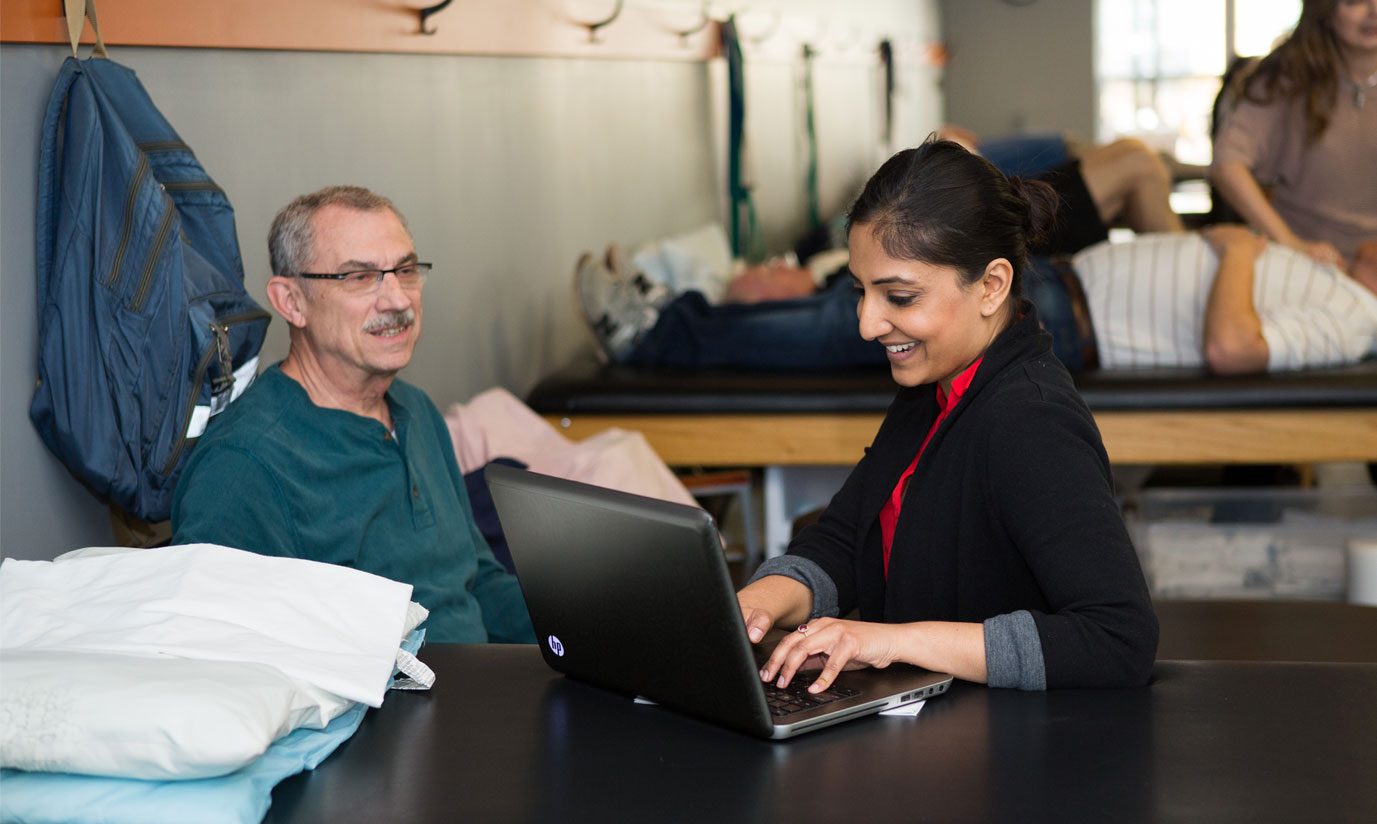
GERIATRICS - Vestibular Physical Therapy for the Aging Adult
-
Register
- Non-Member - $200
- PT Member - $120
- PTA Member - $120
- Student - $120
- Post-Professional Student - $120
- Staff - Free!
- *Further discounts may apply once you log in.
Vestibular disorders affect many older adults, the most common one being benign paroxysmal positional vertigo (BPPV). Symptoms of dizziness and imbalance can negatively impact the mobility of older adults and cause fear of falling, leading to disability and poor quality of life. Physical therapy can significantly improve the lives of older adults living with vestibular disorders. This monograph aims to educate physical therapists working with older adults about common vestibular disorders that affect older adults, the examination process and evidence-based outcome measures utilized for assessing older adult patients with known or possible vestibular disorders, and the rationale and expected outcomes of the application of vestibular rehabilitation interventions in older adults.
Editor: Barbara Billek-Sawhney, PT, EdD, DPT, GCS
Learning Objectives:
Upon completion of this monograph, the course participant will be able to:
- Describe the changes to the vestibular system due to normal aging.
- Compare and contrast the pathophysiology of common disorders of the vestibular system.
- Differentiate between signs and symptoms caused by peripheral versus central vestibular pathology.
- Recognize and interpret abnormal findings\non vestibular function, oculomotor, and vestibulo-ocular tests.
- Select and interpret evidence-based outcome measures for assessment of gait and balance in older adults with vestibular disorders.
- Analyze the results of positional testing to determine the location and type of benign paroxysmal positional vertigo (BPPV).
- Synthesize the subjective and objective findings of the physical therapy examination to select the appropriate vestibular rehabilitation interventions for an older adult with dizziness and imbalance.
- Discuss the physical therapy goals and expected outcomes of vestibular rehabilitation in the older adult.
- Integrate knowledge of the physical therapy management of vestibular disorders in older adults through case studies.
Anne Kloos
PT, PhD, NCS
Dr. Kloos received her physical therapy degree from the University of Wisconsin-Madison and her doctoral degree in biology/neuroscience from Cleveland State University. Dr. Kloos is currently a Professor Clinical in the Physical Therapy Division at the Ohio State University where she teaches adult neurorehabilitation and neuroscience courses. This is coupled by Dr. Kloos’ research on balance and gait interventions in individuals with neurodegenerative diseases including Parkinson’s disease, dementia with Lewy bodies, and Huntington’s disease. She is a board certified neurologic physical therapy specialist and has over 25 years of clinical experience. She presently serves as Co-Director of the Ohio State University Neurologic Physical Therapy Residency Program and Associate Editor of the Journal of Neurologic Physical Therapy. Previously she served as Chair of the Degenerative Diseases Special Interest Group and of the Neurologic Residency Curriculum Task Force for the American Physical Therapy Association.
Deborah Kegelmeyer
PT, DPT, MS, GCS
Dr. Kegelmeyer is a Professor Clinical in the Physical Therapy Division at The Ohio State University. She is aboard certified geriatric physical therapist and teaches geriatric and neurologic rehabilitation courses. Dr. Kegelmeyer’s research is focused on determining optimal methods for measuring clinical progress in older adults and clients with neurodegenerative disorders and on treatments to improve walking and balance in these clients. She served as the chair of the Parkinson Disease EDGE task force for the Academy of Neurologic Physical Therapy and is past secretary of the Degenerative Disease Special Interest Group. She obtained her physical therapy and masters of allied medicine degrees at The Ohio State University and her Doctor of Physical Therapy degree at Massachusetts General Hospital, Institute of Health Professions. She is the co-director of the Mobility and Exercise in Neurodegenerative Disease (MEND) lab.
Course Instructions
- Click on the Contents tab to watch the course recording.
- Click the Take Quiz button to complete the assessment. Learners will have 3 attempts to pass and must answer at least 70% of questions correctly.
- Click the View/Print Your Certificate button under the Certificate listing. You can view/print your certificate at any time by visiting the APTA Learning Center and clicking the CEU Certificate/Transcript link on the left-hand side of the page.
Need Assistance?
For assistance logging in, accessing activities, claiming credit, or for other questions or concerns, please e-mail learningcenter@apta.org.



